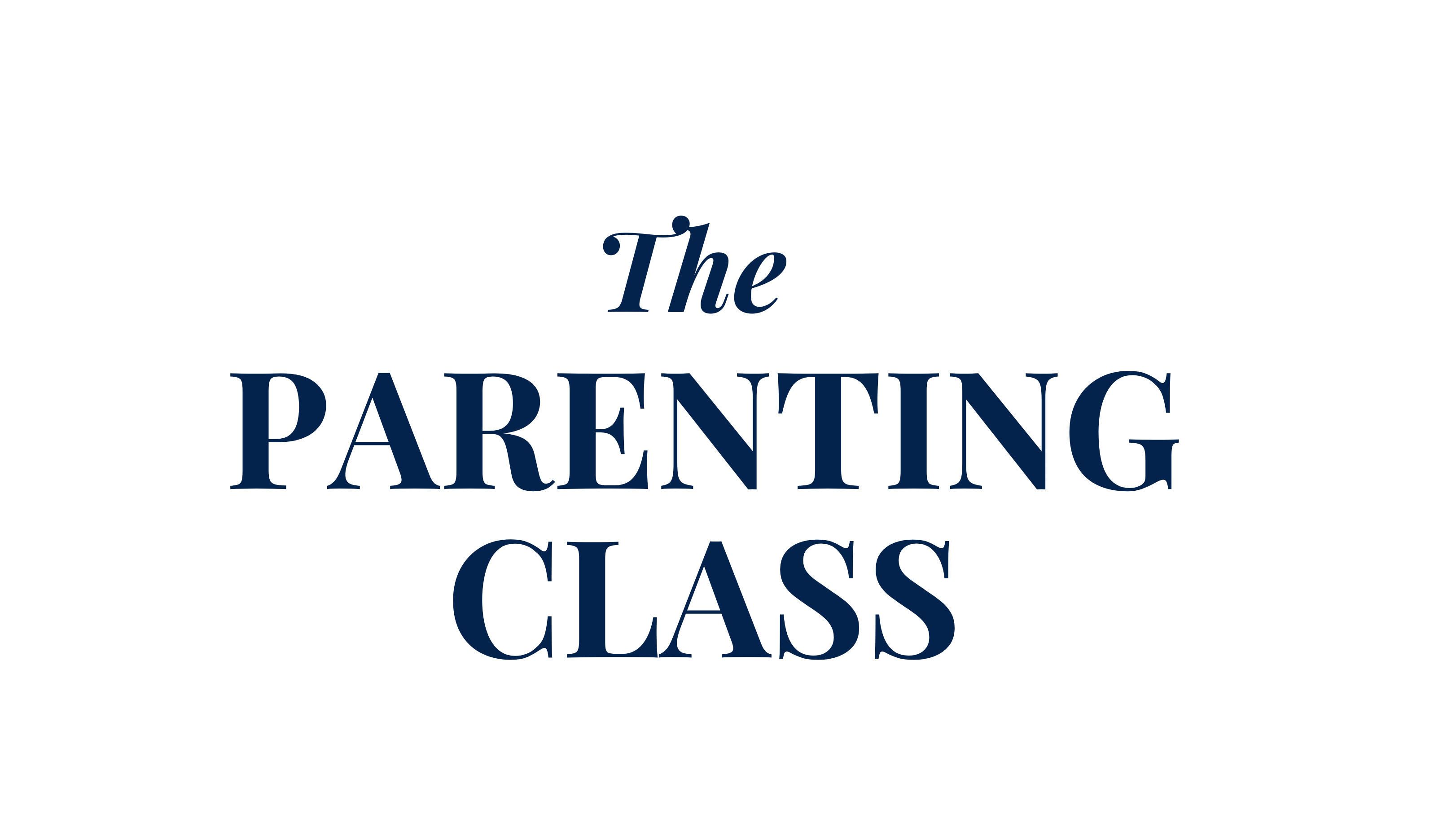The Women That Shaped History’s Greatest Minds – And What We Can Learn From Them

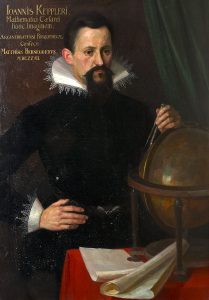
What makes a genius? For centuries, we have fixated on the brilliance of historical figures including their discoveries, their breakthroughs and their world-changing ideas. But behind every great mind is a foundation carefully built in childhood and often shaped by a figure history rarely credits: their mother.
There is no doubt that parenting plays a crucial role in intellectual development, and modern research supports what history has quietly shown us all along – namely, that high achievers rarely emerge in isolation. They are nurtured in environments where curiosity is encouraged, and where perseverance is instilled. But also, an environment where mistakes and failure is not feared but considered part of every learning process.
A 15-year study by Harvard economist Ronald F. Ferguson and journalist Tatsha Robertson identified common traits in the parenting of high achievers. Their research outlined eight key parental roles, ranging from “The Early Learning Partner” to “The Revealer” – someone who expands a child’s intellectual world by introducing them to new ideas and disciplines.
In essence, these parents were not just caretakers; they were cultivators of greatness.
Take Pauline Einstein, for example. When others dismissed her son Albert as slow because he spoke late, she decided she wanted to act and provide the best she can. She filled his world with books, music, and discussions, ensuring he had the intellectual stimulation to flourish. Her persistence – especially in making him stick with violin lessons – may have played an unrecognized role in the development of his scientific genius. Albert himself later admitted that some of his most profound insights came while playing music.
This pattern repeats across history. Kepler’s mother, Katharina, introduced him to the stars long before he became the first to mathematically prove that planets orbit the sun. Nikola Tesla credited his inventive mind to his mother, Georgina, who – despite lacking formal education – was an innovator in her own right coming up with various small inventions to make life in their home easier. Thomas Edison’s mother refused to accept a schoolteacher’s claim that her son was “addled” and took charge of his education, setting him on the path to becoming one of the most prolific inventors of all time (note: yes, he is a controversial figure given accusations of taking credit for others’ work, particularly in his disputes with Nikola Tesla and other inventors. However, his impact on modern technology and innovation remains significant.)
These mothers, these women were not passive figures in the background; they were active shapers of history’s greatest minds. And even though their contributions were often overlooked, their influence does endure in the legacies their children left behind.
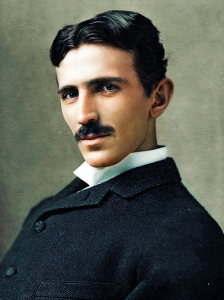
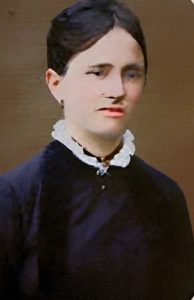
But what does this mean for parents today?
If we hope to raise the next generation of innovators, problem-solvers, and thinkers, what does that mean for our parenting strategies?
Raising a child with extraordinary potential is not about forcing greatness but about creating the right conditions for it to emerge. The mothers of history’s greatest minds understood this instinctively, long before psychologists and neuroscientists could explain why their strategies worked.
Modern research on child development, cognitive science, and educational psychology aligns with the parenting approaches of these remarkable women. Studies show that intelligence is not purely genetic; it is deeply shaped by the environment, especially in the formative years. The key factors? A balance of intellectual stimulation, emotional security, and structured challenge.
Want to learn how to support optimal brain development from birth to 18 months? Check out my class The Growth Formula — built for parents who believe in nurturing potential early.
-
Setting the Stage for Curiosity and Questions
Einstein’s mother, Pauline, filled their home with books, discussions, and music. Edwin Hubble’s mother, Jennie, created an environment where questions were encouraged, counterbalancing the strict discipline of his father. Today, research confirms that the richness of a child’s early environment plays a crucial role in cognitive development.
- A study from the University of Chicago found that children exposed to complex language, storytelling, and problem-solving at home can develop stronger analytical thinking skills later in life.
- Neuroscientific research highlights that music training enhances neural plasticity, reinforcing Einstein’s own claim that playing the violin helped him think.
- According to attachment theory, children who feel emotionally secure are more likely to take intellectual risks, as they do not fear failure in the same way as children raised in highly critical environments.
- A study found that emotionally supportive parenting was strongly linked to executive function in preschoolers.
2. Encouraging Perseverance with a Growth Mindset
When Thomas Edison’s school teacher dismissed him as unteachable, his mother took over his education. She didn’t just encourage him – she challenged him. Nikola Tesla’s mother, Georgina, was not only an innovator herself but taught him to persist in creative problem-solving.
- Psychologist Carol Dweck’s research on the growth mindset reveals that children who are encouraged to embrace challenges and persist through difficulty develop a stronger capacity for problem-solving.
- A study from Stanford University found that children whose parents encourage effort over innate ability are more likely to take intellectual risks – an essential trait of great innovators.
- Developmental psychology research highlights that children develop resilience not from avoiding struggle, but from learning to navigate it with support.
- A study found that children whose parents provide emotional scaffolding – offering encouragement while allowing independence – develop stronger problem-solving skills and self-efficacy.
3. The Importance of Expanding a Child’s World
Johannes Kepler’s mother, Katharina, took him up a hill to watch a comet, sparking a fascination with the cosmos that would redefine astronomy. Einstein’s parents hosted lively discussions with scientists at home, exposing him to advanced mathematical ideas long before formal education would have.
- Research also emphasizes the power of early exposure to diverse ideas, showing that children who interact with a wide range of intellectual topics develop more flexible thinking and creativity.
- A study found that children who engage in deep conversations with adults about abstract concepts develop stronger reasoning skills.
All of this can help build a strong self-perception, especially if coupled with an encouraging and supportive parent.
- Self-perception is a powerful predictor of success – research shows that children who believe in their own intelligence perform better on cognitive tasks, regardless of their initial skill level.
- Various studies found that parental encouragement was a strong predictor of academic motivation.
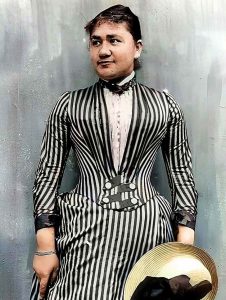
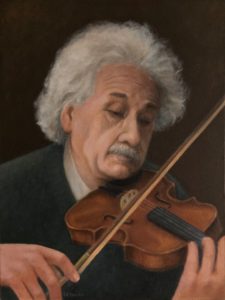
These historical examples reveal an important truth: genius is not only about being born with an exceptional brain (some sure are!) but about being placed in an environment that fosters exploration, persistence, and intellectual depth.
Parents today can take these lessons and apply them in small, meaningful ways. You don’t have to raise the next Einstein, but offering your child the most optimal learning environment to help them think critically, explore their passions, and develop resilience can set them up for success in any field they choose.
To sum up some key insights you can apply starting in toddlerhood:
✅ Encourage curiosity – Provide access to books, discussions, and experiences that go beyond standard education.
✅ Foster perseverance – Teach children to work through difficulties instead of seeking immediate success.
✅ Create an emotionally secure environment – Make space for failure, exploration, and self-expression.
✅ Believe in your child – Because sometimes, the difference between brilliance and obscurity is simply the presence of someone who sees the potential before anyone else does.
Want to learn how to support optimal brain development from birth to 18 months? Check out my class The Growth Formula — built for parents who believe in nurturing potential early.
